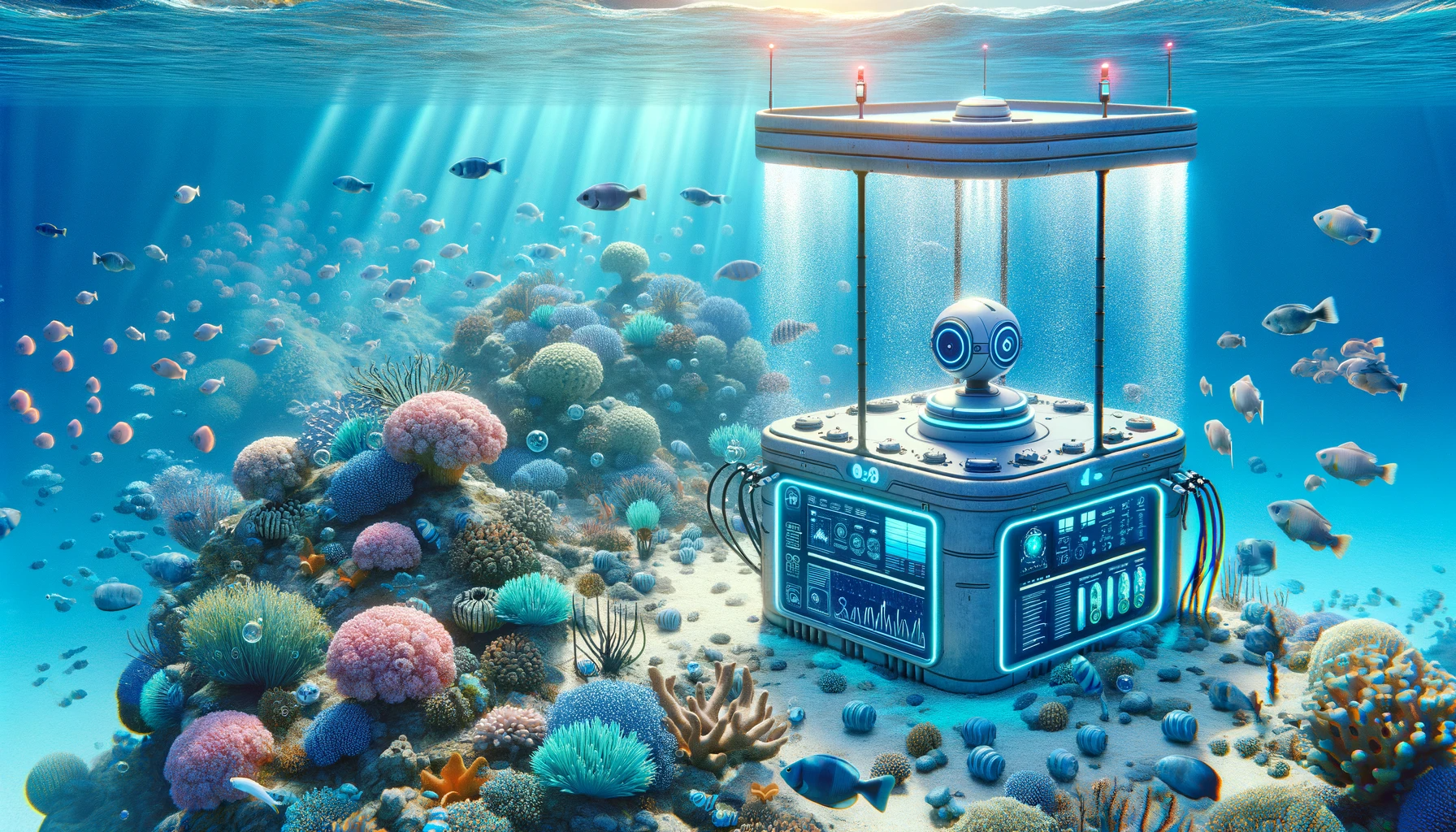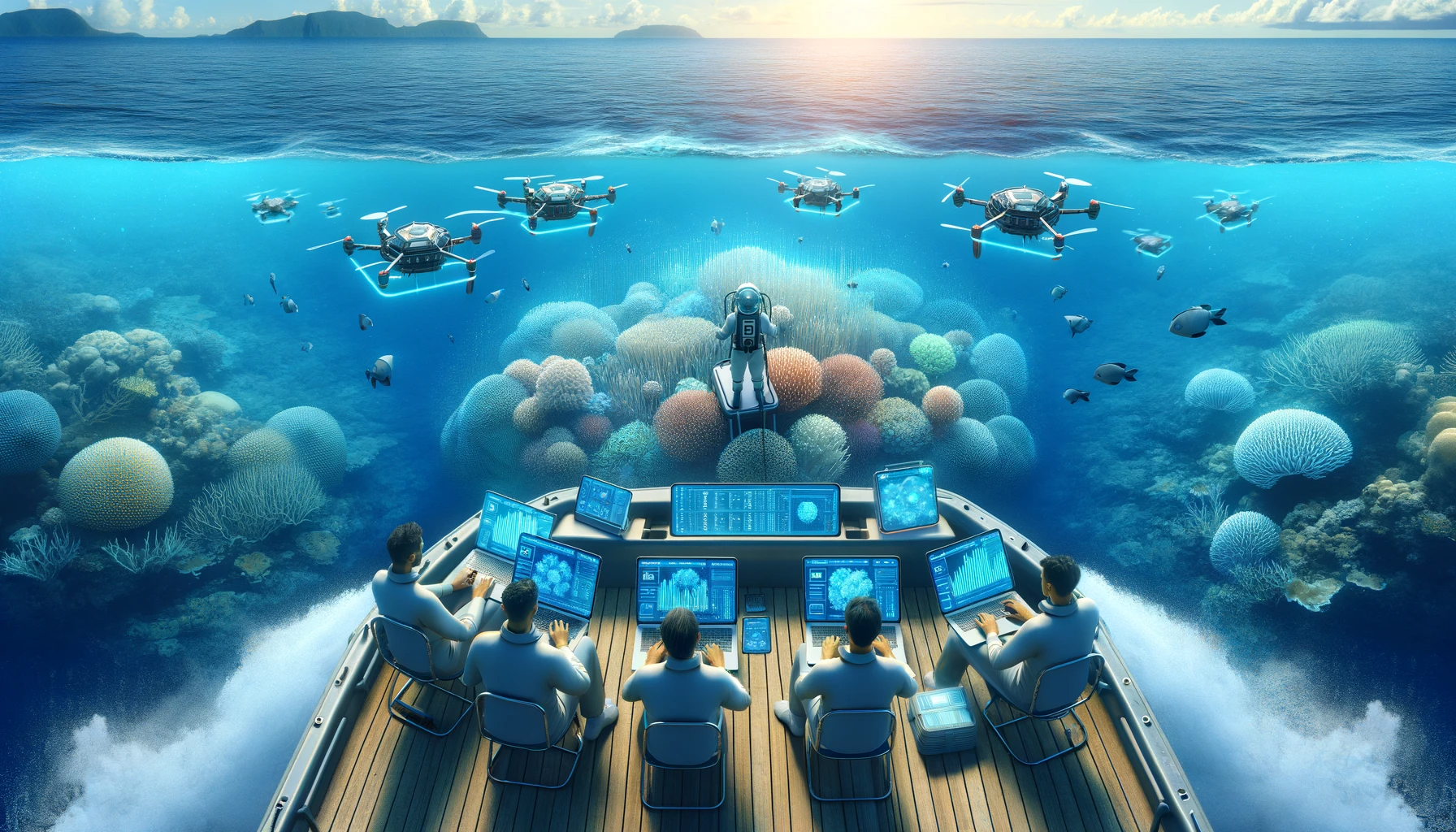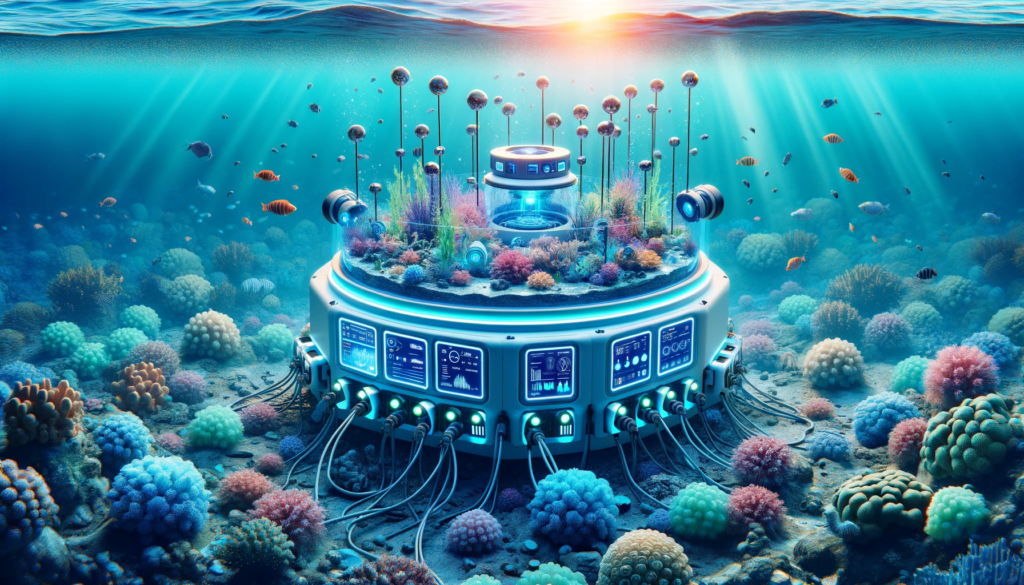Coral reefs, often referred to as the “rainforests of the sea,” are among the most diverse and vibrant ecosystems on the planet. They provide a habitat for a multitude of marine species, offer coastal protection to human communities, and contribute significantly to the global economy through tourism and fisheries. However, coral reefs are facing a dire crisis. Rising sea temperatures, ocean acidification, pollution, and overfishing have placed these vital ecosystems under immense stress. The need to monitor and preserve coral reefs has never been more urgent.
In recent years, artificial intelligence (AI) has emerged as a promising tool in the field of marine science and conservation. AI-powered technologies have the potential to revolutionize the way we monitor and protect coral reefs. This article explores the transformative role of AI in coral reef preservation, from real-time monitoring to early warning systems and AI-assisted restoration efforts.
The Coral Reef Crisis
Coral reefs are in the midst of a global crisis. Climate change, driven by the release of greenhouse gases, has led to rising sea temperatures and ocean acidification, resulting in coral bleaching and decreased calcification rates. Pollution from coastal runoff, plastics, and oil spills further degrades these fragile ecosystems. Overfishing disrupts the delicate balance of reef ecosystems, while destructive fishing practices harm coral formations. The consequences of coral reef degradation are profound, affecting not only marine life but also the millions of people who depend on reefs for food, income, and coastal protection.
The urgency of addressing the coral reef crisis cannot be overstated. Without intervention, many coral reefs face the risk of irreversible damage and collapse. Innovative and effective solutions are needed to combat the threats that coral reefs confront daily.
AI in Coral Reef Monitoring
The integration of AI into coral reef monitoring represents a ray of hope in the fight to protect these vulnerable ecosystems. AI technologies, ranging from underwater drones equipped with advanced sensors to satellite imagery processing, are changing the game in terms of data collection, analysis, and conservation efforts.
One of the primary advantages of AI in coral reef monitoring is its ability to collect and process vast amounts of data quickly and accurately. Underwater drones equipped with high-resolution cameras and environmental sensors can navigate coral reefs, capturing images and data that were once labor-intensive and time-consuming to obtain. These drones can cover large areas and depths, providing researchers with a comprehensive view of reef conditions.

Satellite imagery, coupled with AI algorithms, enables real-time monitoring of coral reefs on a global scale. AI can analyze these images to assess coral health, detect changes in water quality, and identify potential threats such as coral bleaching events. This level of data processing and analysis is beyond the capability of human researchers alone.
Moreover, AI contributes to reducing the human footprint on coral reefs. Traditional methods of data collection, which often involve physical presence on the reef, can inadvertently cause damage. AI-driven monitoring allows for non-invasive, remote observation, minimizing disturbance to fragile ecosystems.
In the next sections, we will delve deeper into how AI is utilized in coral reef data collection and analysis, early warning systems, and coral restoration efforts, showcasing specific examples of AI-powered initiatives making a difference in reef conservation.
Data Collection and Analysis
AI’s transformative role in coral reef monitoring extends to the critical phases of data collection and analysis. Traditional methods of data collection, such as divers manually recording information, are limited in scope and accuracy. AI-driven technologies, on the other hand, enable researchers to gather a wealth of data efficiently and precisely.
Underwater drones equipped with AI-enabled cameras and sensors can capture high-resolution images and videos of coral reefs in their natural habitat. These drones navigate through the intricate coral formations, capturing detailed data on coral health, species diversity, and the presence of marine life. AI algorithms process this data, categorizing species, identifying anomalies, and monitoring changes over time. This real-time data collection and analysis provide scientists with invaluable insights into the status of coral reefs.
In addition to underwater drones, autonomous underwater vehicles (AUVs) are employed for deeper and more extensive exploration. These AUVs are equipped with AI algorithms that enable autonomous navigation and data collection. They can map large areas of the seafloor and gather data on water temperature, chemistry, and current patterns, all of which are crucial factors affecting coral reef health.
The power of AI lies not only in data collection but also in data analysis. Advanced machine learning algorithms can process massive datasets, identifying trends, anomalies, and correlations that may be imperceptible to human observers. These algorithms can predict coral bleaching events, track disease outbreaks, and assess the impact of climate change on coral reefs. Researchers can make informed decisions and take timely conservation actions based on AI-generated insights.
Early Warning Systems
One of the most critical applications of AI in coral reef conservation is the development of early warning systems. Coral bleaching, which occurs when corals expel their symbiotic algae due to stress, is a major threat to reefs. AI can predict and provide early warnings for coral bleaching events, allowing for rapid response and mitigation efforts.
AI-driven early warning systems utilize historical data, real-time monitoring, and predictive algorithms to forecast environmental conditions conducive to coral bleaching. These systems can detect subtle changes in sea temperature, salinity, and water quality that may precede bleaching events. When such conditions are identified, alerts are sent to conservationists, marine resource managers, and policymakers, enabling them to take proactive measures.
For instance, the Great Barrier Reef in Australia has implemented an AI-powered early warning system that continuously monitors ocean conditions. This system provides timely notifications of potential bleaching events, allowing researchers to assess the severity and take targeted conservation actions. AI’s ability to predict and respond to threats in near-real-time is a game-changer in preserving coral reefs.
AI-Assisted Coral Restoration
Coral restoration is another area where AI is making significant contributions. Coral nurseries and restoration efforts are essential for reviving damaged reefs and enhancing their resilience to environmental stressors. AI plays a vital role in optimizing coral restoration processes.
AI can assist in the selection of resilient coral species for restoration projects. By analyzing genetic data and environmental conditions, AI algorithms identify corals with a higher likelihood of survival in the face of rising temperatures and disease outbreaks. This ensures that restoration efforts focus on species with the best chance of thriving in changing marine environments.
Moreover, AI contributes to the efficient propagation of corals in nurseries. AI-controlled systems monitor and maintain optimal conditions for coral growth, including water temperature, lighting, and nutrient levels. These systems can detect signs of stress or disease in corals early on, allowing for prompt intervention.
AI-powered robotics are also used for precise and delicate transplantation of corals onto damaged reefs. These robots can navigate underwater, identify suitable locations for coral planting, and execute precise placements, maximizing the success rate of restoration efforts.

Challenges and Future Prospects
While AI holds immense promise in coral reef conservation, several challenges and limitations must be addressed. One of the primary challenges is data accuracy and accessibility. AI models require high-quality, reliable data for training and analysis. Ensuring that data from diverse coral reef locations and conditions are accessible and accurate is essential for the effectiveness of AI-powered solutions.
Another challenge is the cost associated with AI technology adoption and maintenance. Many conservation organizations and researchers may lack the financial resources to implement AI-driven monitoring and restoration programs. Addressing these financial barriers and promoting collaboration between public and private sectors is crucial.
Despite these challenges, the future prospects of AI in coral reef conservation are promising. Ongoing research aims to refine AI algorithms, improve data collection methods, and make AI technology more accessible to a broader range of stakeholders. As AI continues to evolve, it holds the potential to transform the way we monitor and preserve coral reefs, offering hope for the recovery of these vital marine ecosystems.
In conclusion, the application of artificial intelligence in the monitoring and preservation of coral reefs holds great promise for addressing the urgent crisis facing these invaluable marine ecosystems. As coral reefs continue to face threats from climate change, pollution, overfishing, and other stressors, AI technologies provide essential tools for researchers, conservationists, and policymakers.
AI’s ability to collect vast amounts of data, analyze complex environmental factors, and predict coral bleaching events offers a proactive approach to reef conservation. Early warning systems powered by AI can provide timely alerts, enabling rapid response efforts to mitigate damage and protect vulnerable corals.
Moreover, AI-assisted coral restoration efforts contribute to the resilience of coral reefs. By selecting resilient coral species, optimizing growth conditions, and employing robotic transplantation, AI enhances the success rate of restoration projects, aiding in the recovery of damaged reefs.
Despite the challenges and limitations, the collaborative efforts of the scientific community, environmental organizations, and governments, along with the continued development of AI technologies, offer hope for the future of coral reefs. By harnessing the capabilities of AI, we can better understand, monitor, and preserve these vital marine ecosystems, ensuring that they continue to thrive for generations to come. The integration of AI into coral reef conservation is not only a scientific advancement but also a beacon of hope for the “rainforests of the sea.”
